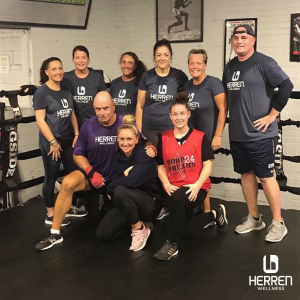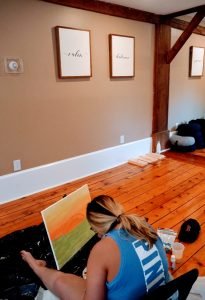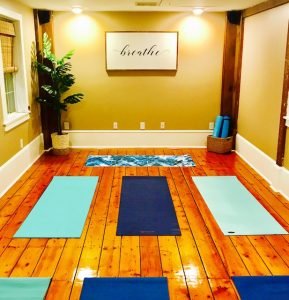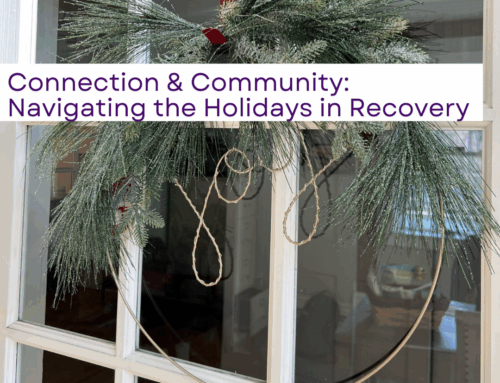 Early recovery brings many changes, both exciting and challenging. Even positive changes can feel overwhelming, as many of the aspects of life change physically, emotionally, and socially. Establishing new patterns and routines and building structure into your life help you adjust to early recovery and allows for much-needed predictability in the face of all these changes.
Early recovery brings many changes, both exciting and challenging. Even positive changes can feel overwhelming, as many of the aspects of life change physically, emotionally, and socially. Establishing new patterns and routines and building structure into your life help you adjust to early recovery and allows for much-needed predictability in the face of all these changes.
Routines and patterns also strengthen and enhance your recovery, as it helps you prioritize recovery, shore up healthier habits, reduce unpredictability (which can be precarious in early recovery), and provides you with a healthier, more balanced life.
The Benefits of Routine for Recovery
Routine helps you establish a predictable rhythm to your days. This is important as the body and mind learn to expect a certain pattern of behavior and adjust accordingly. Think of it as a “body clock” that becomes accustomed to your patterns. Your body clock learns to set itself for usual times for sleeping, eating, and exercise habits (or lack of these), and in early recovery, you are effectively reprogramming your body to anticipate newer healthier routines.
Your mental wellbeing relies heavily on how your body is doing. The brain learns to predict habits and routines, and when these are disrupted the brain becomes more easily overwhelmed. This body/mind relationship is reciprocal, and both work together to establish and reinforce all patterns of behavior.
 Unstructured time can also be precarious in early recovery and can cause restlessness and boredom: two emotions that are notoriously difficult to navigate in early recovery. Routine and structure are the antidotes to restlessness, boredom, and anxiety around how to fill your time as you adjust to your new life in recovery.
Unstructured time can also be precarious in early recovery and can cause restlessness and boredom: two emotions that are notoriously difficult to navigate in early recovery. Routine and structure are the antidotes to restlessness, boredom, and anxiety around how to fill your time as you adjust to your new life in recovery.
Things to consider when you evaluate your daily routine include (in no particular order):
- Sleeping Habits
- Eating habits
- Socialization time
- Exercise
- Work
- Personal hygiene
- Personal time for quiet self-reflection and/or meditation (how you check in with yourself)
- Exploring interests and activities (or hobbies)
- Engaging with your recovery support network
Ways to Establish Routine and Structure in Early Recovery
 In active substance use, many people aren’t accustomed to a predictable routine, so it can be challenging at first to adhere to a regular schedule. It takes a few weeks for a habit to become a routine, so stick with it – it’s worth it! Even coming up with ways to establish routine can be tricky, so here are a few thoughts and ideas:
In active substance use, many people aren’t accustomed to a predictable routine, so it can be challenging at first to adhere to a regular schedule. It takes a few weeks for a habit to become a routine, so stick with it – it’s worth it! Even coming up with ways to establish routine can be tricky, so here are a few thoughts and ideas:
Sleep: Create a consistent sleep schedule that includes going to bed and waking up at a consistent time. Even if you don’t have work or family obligations that require you to be awake at a certain time, get up at the same time every day to adjust your body clock and avoid over-sleeping which can lead to depression, boredom, and other mental/physical concerns.
Fitness: A fitness routine doesn’t have to be overwhelming, in fact, whatever you decide to do for fitness should fit comfortably into your life and be something that calms you and enhances your spirit. Setting your sights on running a marathon may not be the best way to go about this in early recovery; a 20-minute walk outside or on a treadmill every day is a great start. Yoga, fun outdoor activities, stretching, calisthenics, and strength training are also great ways to get your blood flowing and start (or end) your day.
 Nutrition: The food we eat fuels our body and our mind, so what you put into your body matters, particularly in early recovery when you may be physically depleted from active substance use. Make sure you are consuming a healthy combination of protein, whole grains, fruits, and vegetables daily. If you like to cook, find some interesting healthy recipes and make mealtime into a creative endeavor as well! You will feel the results of healthy eating almost immediately with a clearer mind, a stronger body, more energy, and better sleep.
Nutrition: The food we eat fuels our body and our mind, so what you put into your body matters, particularly in early recovery when you may be physically depleted from active substance use. Make sure you are consuming a healthy combination of protein, whole grains, fruits, and vegetables daily. If you like to cook, find some interesting healthy recipes and make mealtime into a creative endeavor as well! You will feel the results of healthy eating almost immediately with a clearer mind, a stronger body, more energy, and better sleep.
Self-Care: It’s vital to prioritize self-care time into your routine to avoid being ‘over-busy’ and/or tiring yourself out. Self-care is whatever you do for yourself that enriches your spirit, lifts you up, and leaves you feeling positive and refreshed. For some people a nice run is a form of self-care, for others, it’s curling up for 20 minutes with a good book, or spending time with beloved friends. Self-care isn’t synonymous with self-indulgence, or selfishness; it’s the opposite, in fact. You can’t be fully present for yourself, your responsibilities, or your loved ones if you aren’t caring for yourself first.
 Recovery Support: This is vital in early recovery. By staying close to your recovery support network, in whatever form that takes: whether it is recovery meetings, socializing with sober friends, or a daily chat with a person in recovery, nurturing sober relationships is essential. You need to be around people who understand and can offer empathy, advice, and support.
Recovery Support: This is vital in early recovery. By staying close to your recovery support network, in whatever form that takes: whether it is recovery meetings, socializing with sober friends, or a daily chat with a person in recovery, nurturing sober relationships is essential. You need to be around people who understand and can offer empathy, advice, and support.
Hobbies/Activities: Early recovery is the perfect time to engage in activities and/or hobbies you likely didn’t have time for in active substance use. Join a town sports team, take a class to learn something you’ve always wanted to do, write in a journal, knit/sew, take on some home projects you have put off, or tackle that enticing pile of books on your bedside table. Whatever makes you feel engaged, interested and enriched is a great activity or hobby to pursue and make time for in your schedule.
Results of Keeping a Routine
As challenging as it can be in the early days of establishing new patterns and routines, the rewards are worth it! Some of the rewards and benefits of routine include:
- Regular, healthy sleep, and waking up refreshed in the morning.
- Increased productivity and less wasted time.
- Reduction in feeling overwhelmed.
- Reduction in procrastination.
- Healthy mind and body.
- Maintaining a strong recovery.
- Meeting new people.
- Learning new things.
 About Herren Wellness
About Herren Wellness
We work with guests to rediscover their purpose, passions, and strengths. We build self-care and mindfulness skills to help guests become aware, live fully present in their lives, and treat themselves with loving-kindness. We also provide the tools needed to establish healthy habits and patterns like fitness, healthy sleep hygiene, and proper nutrition. We help guests uncover and experience the things that bring joy, meaning, and purpose to their lives.
If you, or a loved one, are looking for help, please call us at (844) 443-7736, email us at info@herrenwellness.com, or fill out a contact form. You are not alone.





